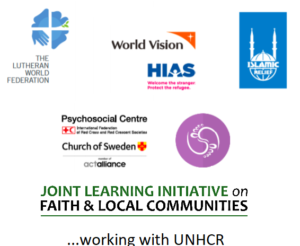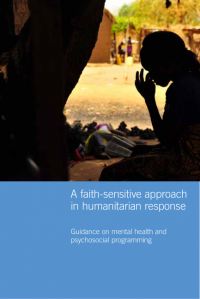
Speakers:
• Daniel Endres, Director of the Division of Resilience and Solutions UNHCR
• Ojot Ojulu, Assistant General Secretary, Lutheran World Federation (LWF)
• Alastair Ager, Director, Institute for Global Health and Development, Queen Margaret University
• Ann Reggie Jaj, Islamic Relief Kenya
• Elena Fiddian-Qasmiyeh, University College London, Joint Learning Initiative on Faith & Local Communities (JLI), Refugee Hub co-chair
Moderator: Michael French, LWF
The vast majority of people lay claim to some form of faith or religion, and they do not leave it behind in a humanitarian crisis. Taking people’s faith identity seriously in shaping humanitarian response is simply part of a people-centered approach.
- How do we address this without threatening humanitarian principles of impartiality and neutrality ?
- How can humanitarians (regardless of faith, ideology, or whatever) become ‘faith-sensitive’ ?
- How can we engage with faith communities and faith actors in response ?
- This requires the insights of all humanitarian actors, non-faith as well as faith-based.
Related resource:


